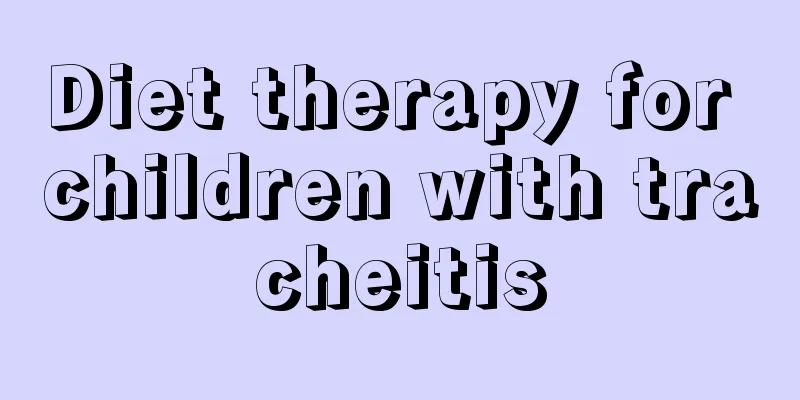How tall is a three year old child?

|
For many mothers, they can seem to breathe a sigh of relief when their children reach the age of three, but mothers must not slack off. In fact, by the age of three, children have their own thoughts, and have begun to behave like adults both in terms of language and psychology. The following is an introduction to the situation of three-year-old children in terms of height and weight, language development, physical skills, and motor skills. The child has officially turned 3 years old and has become taller, completely saying goodbye to the image of a chubby, big-headed child. Now he is flexible and active, his hands are developing gradually, and he can cut, paste and tie them by himself. They have rich imaginations, but cannot yet distinguish between fact and fiction. Their curiosity will also explode at this stage. If you patiently answer their questions, their cognitive abilities will develop rapidly. Boys: Height 86.3-109.4cm; Weight 10.61-20.64kg; Head circumference 45.7-53.5cm. Girls: Height 85.4-108.1cm; Weight 10.23-20.10kg; Head circumference 44.8-52.6cm. Note: The above data is compiled based on the Ministry of Health's "Reference Standards for Growth and Development of Children Under 7 Years Old in China". The development of a baby's abilities mainly refers to the comprehensive development of gross motor skills, fine motor skills, vision, hearing, touch, smell, taste, language, emotions, and social skills. However, the focus is slightly different for each baby at each age, which is also related to the baby's own developmental characteristics. The basic abilities of a 3-year-old baby include: Language development: After the age of 3, the child begins to gradually develop into continuous language and can express some meanings outside of specific situations. A 3-year-old child begins to immerse himself in the joy of talking to himself, which is a stage in the baby's language development. After the age of 3, babies gradually stop expressing their thoughts directly. Instead, they think quietly and make decisions and take actions. Physical skills: Try to use hammers and scissors, try mops and brooms, be a top-notch expert at destroying things, can't repair things but have the desire to repair the entire earth. Kneading plasticine, folding small airplanes, doing jigsaw puzzles, playing video toys...everything is no problem. The baby's sense of space improves rapidly, and he can successfully pour water and rice from one cup into another, and rarely spills them. Complex structures can be built using building blocks. She can dress and undress dolls and likes to play house games. Motor skills: walking, running, jumping, standing, squatting, sitting, touching, crawling, rolling, climbing, jumping down, and crossing obstacles. A 3-year-old child has all the motor skills he or she should have. Your baby should be able to bounce, catch and roll a ball, and should be able to catch a ball thrown from 2 meters away. Regular play on swings, see-saws and slides can help boost your child's confidence in his or her body. Let your baby play the hopscotch game and hop on one foot with your child: hold your baby's hand and let him hop on one foot alternately to practice his jumping ability. Cognitive ability: Can speak about 10 English words. Recite nursery rhymes, Tang poems, advertising slogans and simple stories. Can count to dozens or even 100, and can match numbers with Chinese characters. Be able to recognize 4-6 geometric shapes and cut a circle into 1/2 or 1/4. Put together a jigsaw puzzle with 4-8 pieces. Find the missing parts from the picture. Find the city you live in on the map. Able to draw some simple graphics. Some babies can draw the complete human body structure. Although the proportions are not harmonious, the basic positions have been found correctly. Babies have good memories and can quote things that happened in the past. Emotional development: The personalities and character of parents and caregivers, as well as how they treat their babies, all leave a deep mark on the baby's personality development and even affect the baby's life trajectory. If parents always lose their temper with their baby, the baby will regard "losing temper" as a kind of hostility, and the baby will accordingly develop the habit of looking at the world with "hostility". If parents always deny their baby and criticize him/her constantly, the baby will doubt himself/herself and lack confidence. Social skills: The baby's personality and family have a great influence on him. If you are afraid that your child will suffer and overprotect him, he will become timid and afraid of things, and shrink back and avoid them when encountering problems. If a child is allowed to be a little emperor at home, he will be domineering outside, bully others, and be poor at getting along with others. This personality trait becomes more prominent when he enters kindergarten. At the age of three, children should be guided and corrected in a timely manner to cultivate their good character, such as being cheerful, lively, and good at getting along with others. In fact, when getting along with children, we must learn to respect them and never underestimate these "little guys". By the age of three, their social and language skills have greatly improved and their emotional and motor abilities are steadily improving. For some children, there are also obvious changes in cognitive abilities. |
<<: Height problem of a three-year-old and four-month-old baby
>>: It is normal for newborns to roll their eyes when sleeping
Recommend
What should I do if my baby is one and a half years old and lacks zinc?
Zinc deficiency is a common disease in children w...
Elevated neutrophil count in newborns
If the neutrophil count of a newborn is high, thi...
What should I do if my child has black spots on his teeth?
What should we do if children have black spots on...
What to do if a child has red bumps on his body
If a child develops red bumps on his body, consul...
Newborn abdominal massage preparation
Care for newborns must be comprehensive. Many mot...
What can children eat to get better quickly from upper respiratory tract infection and cough?
Children's immune system is relatively weak, ...
Treatment of nutritional anemia in babies
There are many types of anemia. Most of these ane...
Normal platelet values and manifestations outside the normal range for children of different ages
I believe that the health of the child concerns t...
Is it good for babies to eat kiwis?
Is it good for babies to eat kiwis? For babies, h...
What is the best food for children with dry skin?
Children have very poor physical conditions, whic...
Causes of rubella in babies
If the baby has rubella, parents need to pay atte...
What is the height standard for six-year-old children?
We all know that as children grow older, they wil...
What to do if your child has a fever of 37.3
Children's resistance is relatively poor, esp...
What is the head circumference of a three month old baby?
In life we often say that people with big heads...
What to do if your one-year-old baby is anemic
Anemia in babies is a very common phenomenon, and...









